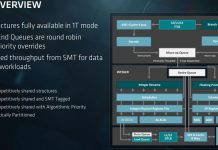Recently we have had several platforms in the lab that are able to accept mSATA SSDs. As a result, we are looking at inexpensive options for boot drives with the expectation that there is other shared storage in the environment. Today we are looking at the MyDigitalSSD Super Cache 2 64GB 50mm drive which retails on Amazon for under $55. MyDigitalSSD includes a FNet HybriDisk license key for installations where one has a rotating spindle disk and wants to cache data on the SSD. This piece will be followed-up by more in-depth side-by-side comparisons in the near future as part of a sub-$80 mSATA round-up we are working on.
Test Configuration
We are using our SSD test bed for these drives for consistency purposes. To make all of our mSATA SSD series drives work in the platform we are using a nice Syba mSATA to 2.5″ SATA converter.
- Processor: Intel Xeon E3-1275 V3
- Motherboard: Supermicro X10SAE (Intel C226 based)
- Boot SSD: Samsung 840 Pro 256GB boot drive
- RAM: 32GB DDR3 ECC 1600MHz 4x 8GB UDIMMs
We are not testing these drives on our LSI SAS controller configuration for a simple reason: the mSATA form factor is unlikely to be utilized with LSI controllers in end-user systems.
The MyDigitalSSD Super Cache 2 50mm mSATA SSD
The MyDigitalSSD Super Cache 2 drive we are looking at here is the 50mm mSATA model. Those are important figures as there are newer interfaces and various sizes for the newer form factor SSDs.

We peeled back the large sticker on the MyDigitalSSD Super Cache 2 drive and saw an interesting configuration. There is a Phison PS3109-S9 four channel NAND controller onboard. The TT57g2LAKA packages one can see are Toshiba 19nm Toggle NAND.
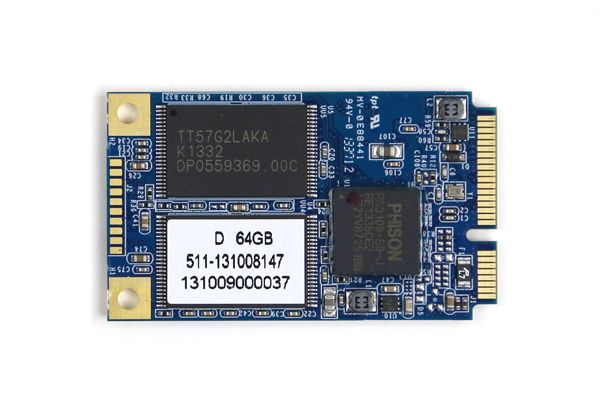
On the rear of the SSD we can see two more TT57g2LAKA packages. 64GB of flash in four packages means we have 16GB of flash on each Phison controller channel.
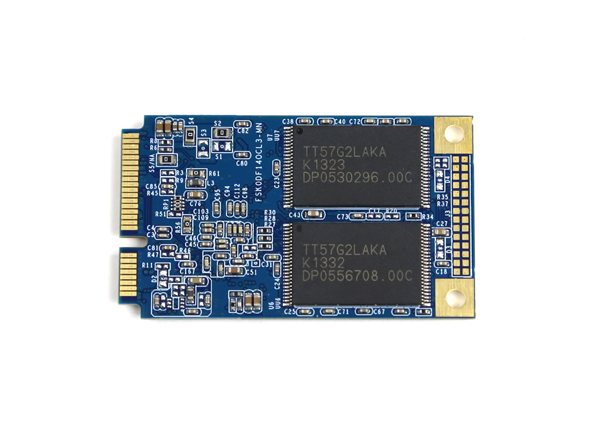
One thing that we do not see, is onboard DRAM cache which many controllers use. Total NTFS formatted space was 59.62GB which makes sense for a 64GB class SSD.
MyDigitalSSD Super Cache 2 Benchmarks
It is important, especially with SSDs not to take a single test result at face value. One should look at a few different tests to get an idea of how the drives perform in different scenarios. To this end, AS SSD benchmark, CrystalDiskMark, ATTO all show different facets of performance.
AS SSD Benchmark
AS SSD is a solid benchmark that does not write compressible data to drives. The result is perhaps one of the best workstation SSD benchmarks available today.
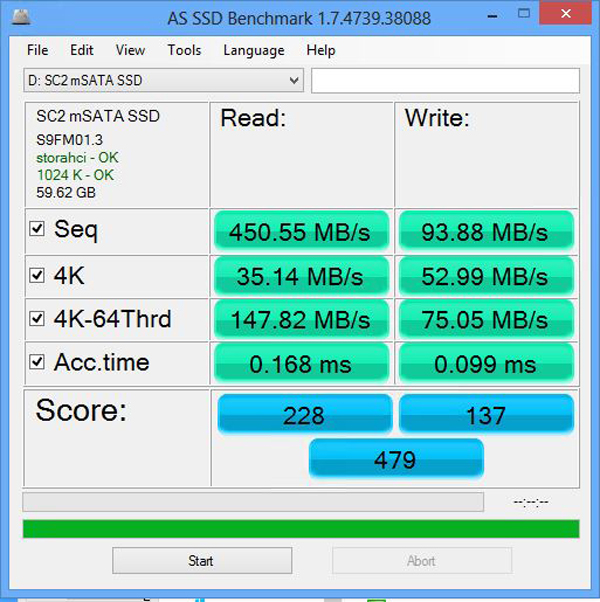
Here we see some decent performance from the Super Cache 2. Sequential read speeds of 450MB/s and 4K-64 thread results of 147MB/s are very strong for a $55 SSD.
CrystalDiskMark
CrystalDiskMark is another benchmark which gives non-compressible read/write numbers. This is in contrast to the ATTO Benchmark used by LSI/ Sandforce and its partners when they market a given solid state drive.
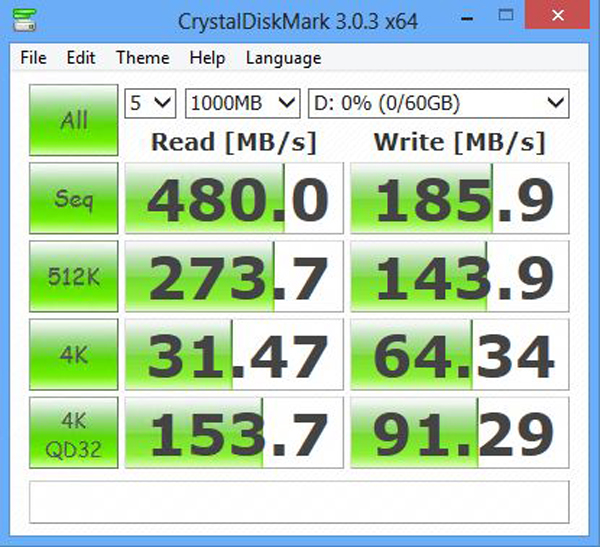
Again wee see high queue depth 4K and sequential read speeds are fairly high on the Super Cache 2. Write speeds are a bit higher than we saw with AS SSD.
ATTO Benchmark
The value of the ATTO benchmark is really to show the best-case scenario. ATTO is known to write highly compressible data to drives, which inflates speeds of controllers that compress data like LSI/ SandForce does prior to writing on a given solid state drive.
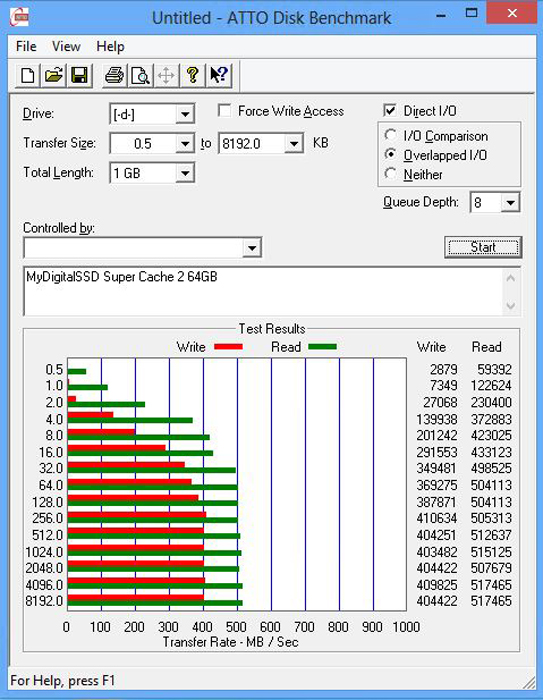
ATTO provides an interesting view on what is going on here. The Super Cache 2 box states 550MB/s read and 430MB/s writes and we were within 10% of both of those figures. With highly compressible ATTO writes, the Phison controller does extremely well.
Conclusion
As a first, and least expensive mSATA SSD in our roundup the MyDigital Super Cache 2 64GB SSD did well. Performance was certainly “good enough” for a HTPC or other application where there is another source of mass storage (NAS or rotating disk as an example.) The performance is certainly better than the vast majority of USB 3.0 drives out there so it makes an excellent low-cost boot drive option. For those running HTPC, ESXi or Hyper-V server builds on platforms such as the Intel NUC series, Supermicro X10SBA, or similar platform, this is a very interesting $55 option for a mSATA boot device.



